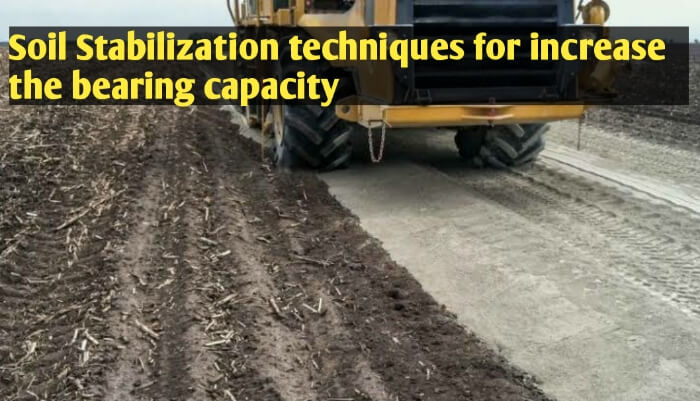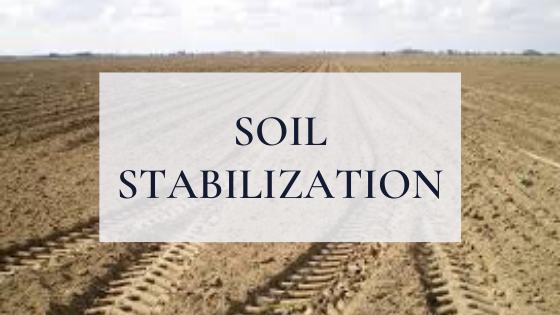The Importance Of Soil Stabilization In Civil Engineering

Soil stabilization is the process of enhancing the strength and durability of soil to support the construction of various engineering structures. It involves the addition of various materials to the soil to improve its properties, such as compressive strength, shear strength, and bearing capacity. Soil stabilization techniques are essential in the construction industry, particularly for building foundations, roads, embankments, and retaining walls.
In this article, we will discuss soil stabilization methods and materials that are commonly used in construction projects.
Introduction
The soil's strength is a critical factor in the structural design of any construction project. The soil should be able to support the weight of the structure and withstand external forces such as wind, water, and earthquakes. If the soil is weak, it can lead to structural failure, which can be dangerous and costly.
Soil stabilization methods add strength and stability to the soil, enhancing its engineering properties. The techniques used in soil stabilization depend on the type of soil and the intended use of the stabilized soil. Let's take a look at some common soil stabilization methods and materials.
Frequently Asked Questions
1. What are the common soil stabilization methods?
There are several soil stabilization methods, including Chemical stabilization, Mechanical Stabilization, Soil Reinforcement and modification.
2. What are the materials used in soil stabilization?
The common materials used in soil stabilization include cement, lime, fly ash, stone dust, and bitumen.
3. What is chemical stabilization?
Chemical stabilization involves the addition of chemicals to the soil to enhance its properties. The chemicals used in soil stabilization include cement, lime, and slag. Chemical stabilization is commonly used for subgrade stabilization, where the soil is weak and requires reinforcement.
4. What is mechanical stabilization?
Mechanical stabilization involves the addition of mechanical devices or materials to the soil to improve its properties. The mechanical devices used in soil stabilization include geogrids, geotextiles, and geocells. Mechanical stabilization is commonly used for erosion control and soil slope stabilization.
5. What is soil reinforcement?
Soil reinforcement involves the addition of materials to the soil to increase its bearing capacity and structural stability. The materials used in soil reinforcement include fiber, wire mesh, and steel rods. Soil reinforcement is commonly used for slope stabilization, road construction, and retaining walls.
6. What is soil modification?
Soil modification involves changing the soil's properties by adding a material that neutralizes specific soil characteristics such as pH, plasticity, and swelling. The materials used in soil modification include Lime, Gypsum, and Fly Ash.
7. What are the advantages of soil stabilization?
The advantages of soil stabilization include:
- Enhanced soil strength
- Improved bearing capacity
- Increased durability
- Erosion control
- Easy construction process
8. What are the disadvantages of soil stabilization?
The disadvantages of soil stabilization include:
- High cost of materials
- Time-consuming process
- Environmental impact due to the use of chemicals
Conclusion
Soil stabilization is an essential aspect of construction projects, particularly for buildings, roads, and retaining walls. The choice of soil stabilization method and material depends on the type of soil and the intended use of the stabilized soil. Chemical stabilization, mechanical stabilization, soil reinforcement, and modification are common soil stabilization methods.
It is essential to consider the advantages and disadvantages of soil stabilization before choosing to implement the technique. If implemented correctly, soil stabilization can significantly improve the soil's strength and durability, leading to safe and efficient construction projects.


Post a Comment for "The Importance Of Soil Stabilization In Civil Engineering"